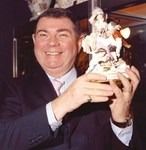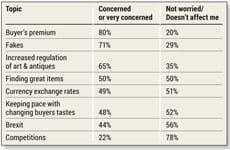The established arguments for and against a total ban were voiced by 11 peers, with the trade corner fought by both LAPADA chairman and former environment minister Lord De Mauley and Lord Carrington of Fulham.
Both emphasised that antiques were unconnected to the illicit market, and said there was ample expertise among UK professionals to date ivory objects properly. They did, however, advocate a licensing system that would be administered and paid for by the auction and dealing community under the supervision of Defra.
The government consultation, which closed on December 29, proposed four potential exemptions: musical instruments; items containing only a small proportion of ivory (the de minimis rule); items of significant artistic, cultural and historic value; and sales to and between museums.
Law in practice
Arguing for a total ban, Baroness Bakewell of Hardington Mandeville said: “Self-certification would be deeply flawed. Auction houses are currently failing to detect old from new.”
Lord Hogan-Howe, the former Metropolitan Police commissioner, speaking for the first time in the Lords, said he “supported a quasi-total ban” but questioned how the law might work in practice.
He said that the phrase ‘of artistic, cultural and historic value’ “was too subjective and too broadly drawn”, and thought a ‘ban’ that permitted gifts and exchange would be hard to police.














